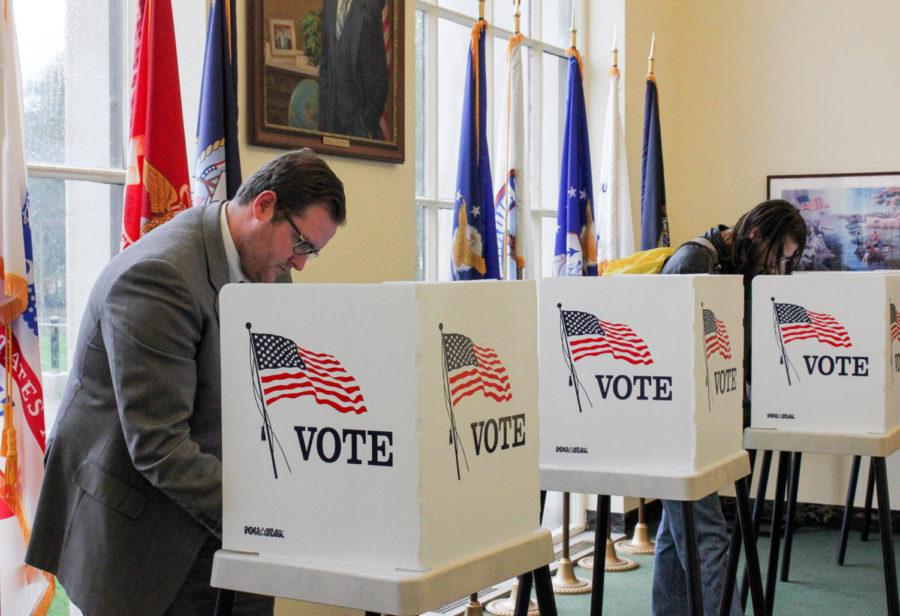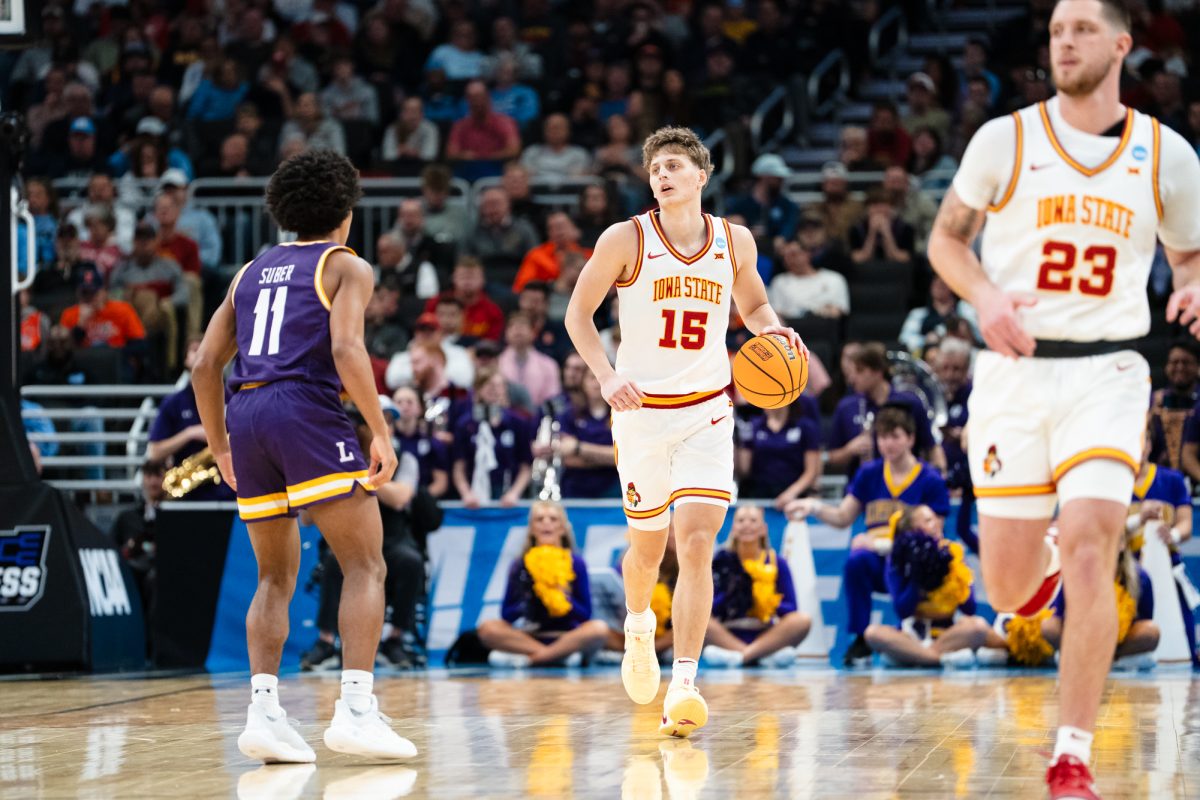Glawe: To vote or not to vote? It should not be a question
Jay Halbur, left, and Stephen Jensen vote in the Col. Pride Veterans’ Lounge in the Memorial Union on Oct. 13. Early voting takes place in the Memorial Union from 9 a.m. to 4 p.m. Oct. 13 through 17.
October 31, 2014
Election day is nearing, and the fears and hopes of both parties will be soon realized. If you’re like me, you will have seriously considered the convenience of voting early. Yet, despite it being less sensible and less preferable, some people still enjoy the thrill of casting their ballot on Election Day.
At least they’re voting. There are others who refuse to vote, and will not be showing up on November 4th. Given the fact that you can vote a month in advance in almost every state, the excuse, “I don’t have enough time to vote”, is silly. So, what’s the real reason?
In 2012, I worked in the field operations of a major campaign. My job was to turn out voters by any means possible and win my precincts. I was a “vote hunter” as I liked to be called. I have had the special privilege of having heard nearly every excuse devised by the nonvoter. The excuses are the same every election season, and it’s high time we shun the non-electorate for their irresponsibility.
What I’ve heard from friends and family who refuse to vote in the upcoming elections is that either they don’t care enough to vote or they just don’t like any of the candidates. The former renders you suspect to laziness and the latter to pacifism.
Politics affects everything, from the local, to the state, to the federal level. Everything you do is in some one way affected by our government. That’s not an emphasis on the all-encompassing power of the government, but merely a comment on the nature of politics itself. If you don’t care about politics, then what do you care about?
Not caring about how your government functions and in what direction it will go is a giant snub to the Founding Fathers and all the people in the world who fight and die for the chance at Democracy. Whether you like it or not, somebody is going to be chosen to represent you, and your carelessness about voting should come with a price – you shouldn’t be allowed to complain about your government if you did nothing to change it.
The excuse, “I don’t like either of the candidates” has more packaging. Some people think, come Election Day, they will be able to choose their representative like a salad bar. The reality is that you’re not going to agree with each candidate on every single issue. Like a salad bar, there are going to be some unappetizing features. The nature of politics almost requires that you disagree on some points. But even so, months are spent choosing candidates through the primaries, and you really can’t complain if you did nothing to advocate for a more preferable candidate. This is to say that politics isn’t exclusive.
If you really did everything you could do to get a more preferable candidate onto the ballot, then you don’t have to vote on that specific race. Instead, you can vote on the local elections (or you can just write-in a candidate). Though, I really think the two parties in our country encompass most of the issues we could possibly have an opinion about, and the candidates are the imperfect culmination of those views. People who dissent from certain candidates usually do so on a mere handful of issues, whereas they generally agree with the rest of the party platform.
I can already hear the cries for a political system that fosters many parties, where we do have a salad bar of choices. This is a separate issue, but a slight digression will likely lead us to Maurice Duverger’sCQ conclusion that the Two-Party System in the United States is completely natural. It is a way of forcing us to compromise within our own ideologies in order to unite against the real opponent.
Suffice it to say the politically active are, for the most part, annoyed by the jaded souls who claim to despise both parties. Such an attitude is telling. It shows that you really haven’t been paying attention to what’s going on in politics.
I’ve grown weary of the frivolous non-voters who say they’re tired of the partisan “bickering”. I’m sorry, but that’s what we do in politics – we argue and bicker. Don’t get me wrong; I’ll be the first to say that the political ads on TV represent exactly what we don’t want in politics. But it is a signal of ineptitude when someone says they don’t engage themselves in politics for the precise reason that it involves confrontation.
There are uninformed/misinformed voters who could be deciding who your representative is, and you don’t want them have your voice. Every vote counts, whether you think it does or not. If you are one of those uneducated voters, it’s not difficult to learn about each candidate and their platform. Even if you don’t pay attention to politics, you can still spend an hour or two researching the candidates.
Of course you have a right not to vote. But what a waste of a revolution that would be.







